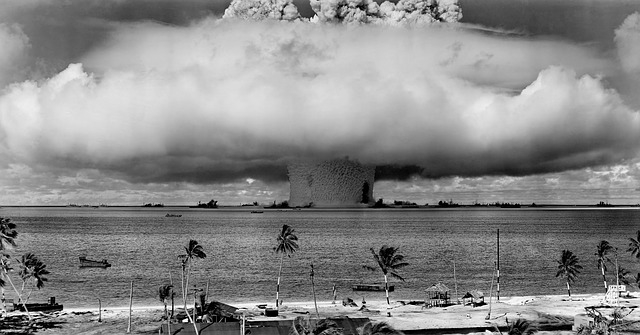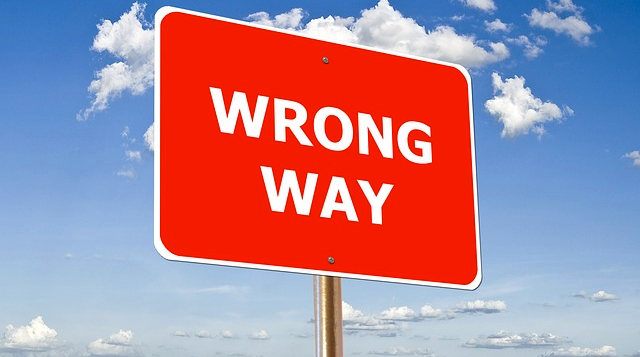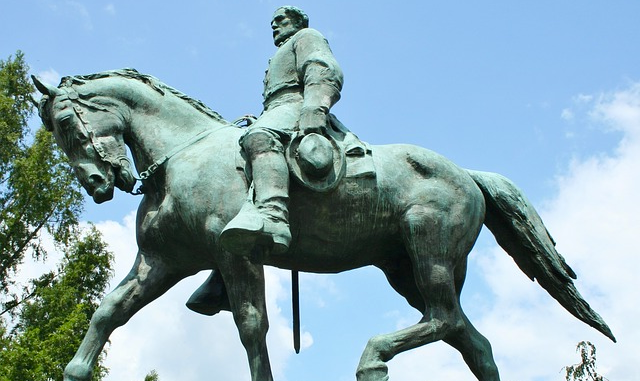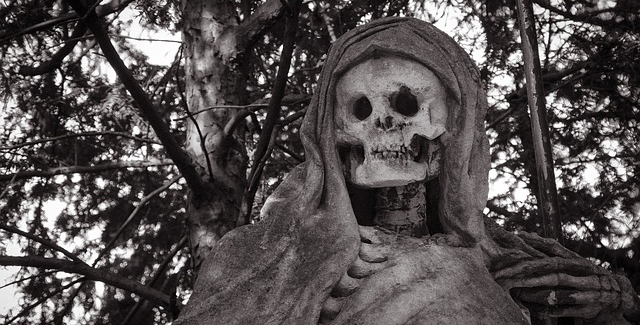In light of my earlier article on dystopias, I thought it would be appropriate to bring back an aborted setting that I worked on a long, long time ago. The premise was that there was a great conflict by a number of groups, called the Utopians, who were each genuinely trying to better everyone’s lives. But they disagreed on methods and they disagreed on ends. Even though they acknowledged that they were all trying to do a good job they couldn’t work together because each of the others sacrificed or didn’t address something which they considered to be of vital importance.
That’s what this is about, by demonstrating and giving examples. Good Guys— or at least Decent Guys— who still can’t get along because they have such differing value systems, and the myriad ways that a utopia can take root. (more…)

(Way With Worlds Runs Weekly at MuseHack and Seventh Sanctum)
So last time I noted how David Brin had gotten me discussing the idea of the Idiot Plot or the Planet Of Morons – the idea the hero(es) are the only things saving the world, which is also corrupt and stupid.
The thing with this plot is it degrades society – and degrades the characters and the world. It makes the heroes stupidly unbelievable, it makes the villains shallow or uninteresting, it makes the world improbable.. It’s in short dumb and inaccurate and psychologically toxic when it’s everywhere.
But I’d like to expand on this in what is hopefully my last Heroes and Villains post on worldbuilding. Yeah, I know, unlikely, but still.
Namely, if you don’t resort to the Idiot Plot and the Planet of Morons (and you won’t, right?), here’s my thoughts on how to make the story or game interesting while preserving world integrity. Because you do want to engage the reader, but you also want to have a good, believable world setting.
First, let’s get to the heart of the matter. (more…)
I like moral dichotomies and moral conflicts in settings. I even, on occasion, enjoy the epic struggle between Good and Neutral, or Candy and Chocolate. But when you have a conflict between the forces of Light and Darkness and they represent Good and Evil every time, well, I get a little exhausted by it. The next go-to option is little better. Order and Chaos? Nowadays that seems to be just as overplayed as Good and Evil. Sometimes even more— or worse, it’s supposedly about Order vs Chaos but these are just synonyms for Good and Evil. (more…)

(Way With Worlds runs at Seventh Sanctum and Muse Hack)
Ironically I was about to wrap up my heroes and villains series when David Brin dropped an asteroid-sized essay in my lap.
He notes rather brilliantly that a huge part of our media is the Idiot Plot, that the story is often about a few people who save the world because everyone else, all of society, are a bunch of idiots if not evil. It’s not just Suspicion of AUthority, he notes its socially corrosive.
Now Brin’s article on its own is well worth reading. I’m not going to recapitulate it here because he did a great job. Also I probably couldn’t do it justice.
But I’m going to address the issue as a matter of worldbuilding, because the Planet of Morons, the Idiot Plot, is a serious problem for worldbuilding. That’s what I cover.
Also this idea doesn’t work for building a world. (more…)

However, after awhile, it seems that it really becomes boring and trope-ridden. We talk Good and Evil but don’t think about it, signifiers are thrown around randomly, and titles like “heroine” or “villain” seem to stand in for actual moral issues. It’s mummifying good and evil, propping up heir bodies, and treating them as marionettes.
A friend of mine once noted that smoking was always used as a sign of evil in media. That was an example of how sometimes good and evil just becomes a pile of signifiers.
So when we think Heroes and Villains, here’s a bit of a challenge of you.
Stop thinking Good and Evil.
Start Thinking Why And How. (more…)

In fact, we know it from worlds and stories all too well. It’s a common part of our heroes – but also in villains who redeem themselves or at least have some integrity
You know the drill:
- The heroic sacrifice of some starship captain or engineer that guides their ship into a deadly run on the enemy – and may not even be saved at the last moment.
- The person who dies for a cause, getting nothing in return.
- The hero or heroine that trows themselves on the grenade-equivalent or detonates the bomb-equivalent by hand to save his or her buddies/country/world (pick at least one).
- The villain, who at the last moment, realizes what a giant moral vacuum they’ve been and dies to correct it.
You can easily name at least a half-dozen other examples. It’s woven throughout literature, through film, through comics, through legend.
However there’s time the sacrifice seems . . . off. It sets your teeth on edge for some reason. It seemed false. It seem contrived. It didn’t work for some reason.
And because it didn’t work, it bugs the hell out of you as a reader or player of the game or whatever. Something is wrong in the world.
In worldbuilding, when self-sacrifice happens, like anything else, it should have a reason. If there’s no reason for it to exist, it’s just going to come off wrong. Yet at times, it seems we shoehorn it in there, or it seems to fit yet . . . it doesn’t.
Here’s some warning signs to look out for that tell you that the brilliant self-sacrifice of your hero, or the touching sacrifice of your reformed (but now exceedingly dead) villain, aren’t.
Tropeagedddon
Sacrifice and self-sacrifice are tropes in literature and settings, and thus done a bit too easy. We throw in something into our plots and panels and game options that “fits” as it fits what we think should fit, but it just doesn’t work in our world.
It’s ay, way too easy to throw in a scene of self-sacrifice, just as sure as it is to put an all-too-familiar action scene in a movie, or a stereotype into a story. Sacrifice is a language people understand – but like selecting the wrong word in a conversation, it doesn’t work if it’s not appropriate.
Look out for putting in acts of self-sacrifice just because “the situation calls for it” or “it fits the story” because it should fit the characters and the world.
Selfish Motives Of The Character
Self-sacrifice is an act of transcending the self for something greater- it’s about giving up literally everything one has for a reason greater than one’s own life. Now those reasons may be questionable or crazy or ephemeral, or just plain stupid (at least to the survivors), but the act of self-sacrifice is literally giving up of self.
It’s not the same as sacrificing the self for something.
However the character motivations may really turn out to be selfish. Consider other motives for self-destructive behavior:
- In order to make someone sorry.
- In order to become famous or remembered.
- In order to escape a problem by appearing to “go out” in a heroic manner.
- To fulfill fantasies of martyrdom.
- As an act of self-hatred, essentially as suicide that doesn’t look like it.
Now these motives may indeed fit whatever character you’re creating who’s about to detonate the McGuffin Orb or whatever. If that fits, then by all means it’s consistent with your setting for them to go out. But it’s not heroic, it’s not noble – and frankly other characters will probably suspect.
Now that could be fascinating (“he saved the world, but he was also an egomaniacal jerk, how do we react”) but be careful of dressing up self-serving sacrifice as something else. It will grate horribly.
Selfish Motives of the Author
Now in no way do I want to cast aspersions on you and your world. But sometimes let’s face it, we do stuff in our stories because we like it, and sometimes that includes how we write characters, and how they die.
We can be motivated to put in an act of self-sacrifice assorted ways:
- To just get rid of an inconvenient character. That’s coping out, and believe me, people will notice.
- Because the character is a Mary Sue/Gary Stu/Author’s pet and we want people to love them/feel sorry for them. Usually it’s transparent enough it annoys people.
- Because we wrote ourselves into a corner or built or world i a way we didn’t expect. Usually a big boom solves some of that, but there’s only so often you can play Crisis On Infinite Earths before you kind of strain your credibility.
When it comes to really good worldbuildng, I think we have to take pride in our crafting a good world, and learn how to make it work. Inserting our own motivations in too far, violating our own continuity, damages our settings. In the case of something as deep as self-sacrifice, it can be outright annoying.
Giving Up The Wrong Sacrifice
So, when your heroes and villains make the ultimate sacrifice, make sure it fits them, that the reasons are good, and that t fits the setting. Sure they may be wrong, stupid, suicidal, but at least portray them properly. It brings a truly visceral feel to the story and avoids cheapening your scenes.
Best of all, when you deliver a tale or a game or a world where these moments of self-sacrifice truly ft, it keeps those involved int he world, the readers and gamers, engaged. It makes the world real and organic and alive – even when characters in it are dying.
That after all is what you’re trying to do.
Steven Savage is a Geek 2.0 writer, speaker, blogger, and job coach. He blogs on careers at http://www.musehack.com/, publishes books on career and culture at http://www.informotron.com/, and does a site of creative tools at http://www.seventhsanctum.com/. He can be reached at http://www.stevensavage.com/.

However, there’s a flipside issue I want to address, that of Incompetent heroes and villains. Though I find the former more common than the latter, it’s still an issue with good worldbuilding.
Ever wonder how the hell this person is going to save the world, or how this moron managed to threaten it? Is their stupidity celebrated as a kind of victory? Does the world builder seem to want you to celebrate it?
Welcome to the world of the Incompetents, the dark side to Omnicompetence
A Familiar Tale
You know the story. The hero who manages to save the day despite being stupid/ignorant/etc. The villain with . . . really nothing going for them except they are somehow a threat. Some characters are even portrayed at being so good at what they do because of their stupidity, which is not a trait you want in doctors, programmers, or scientists let alone your hero and their archnemesis.
Sometimes this is played for laughs, which is fine in a comedy – much as an Omnicompetent character can also be played for laughs. In this case it may well fit your focus.
But other times, I think you know what I mean, the characters successes are so outrageous and unbelievable that you really don’t buy them because they are explained by (and not defeated by) their own incompetence. Just as surely as an Omnicompetent character distorts a world, so does a protagonist and/or antagonist who is so dumb you’re not sure they should be allowed to drive, let alone use the Orbital Death Ray.
These sound a bit like the classic Holy Fools, but I have a better name for them . . .
Unholy Fools
In many cases, I think these characters are distorted versions of the classic Holy Fool, characters that seem weird or dumb or foolish, but there is something greater at work. Somehow they succeed despite or even because of what makes them foolish, and yet you wonder how incompetent they are. They’re paradoxes who may be straightforward.
There’s a beloved tradition of these characters. Sometimes their foolishness is a lack of the B.S. others adsorbed. Others think differently. Yet others mess with people to make a point, appearing foolish. Finally some are ambiguous, and that’s the part of the story, making you wonder.
Captain Tylor of the anime series is a great example of a modern Holy Fool, and his very ambiguity is part of the story. Discworld has several Holy Fools who you later on find are not fools so much as some of their personality traits that seem to be flaws aren’t (not spoiling here).
The Holy Fool, frankly, is a damn hard character to create. If you’re a worldbuilder, you have to understand them inside out when the point is they’re mysterious. If you can do it right more power too you.
However, the Holy Fool sometimes seem to just be the Lucky Dumbasses who are annoying. Let’s call them Unholy Fools.
Thinking Like Children
What we often end up with in these “reverse Omnicompetents,” the Unholy Fools, are often childish characters who succeed for reasons that seem to be dumb luck or their dumbness is somehow a virtue. It’s not that they have a virtue that appears to be dumb (often a classic element of the Holy Fool or Holy semi-Fools), or that they lack a negative complicator, it’s literally they’re just stupid.
This happens in comedies, of course, but can happen in a lot of tales as well. The character who “is just doing their job” or “doesn’t know anything about that, but I know how to punch something” and so on is an Unholy Fool. They succeed supposedly as they’re not smart.
They’re not ambiguous, or differentially smart. There’s not that level of thought put to them.
I think characters like this are popular and easy to fall into as:
- They don’t make the readers or gamers feel inadequate.
- They thumb their nose at supposedly smart/talented people.
- They can be good for a laugh.
Of course after awhile the Unholy Fool here sort of grates on people because they are dumb, their successes aren’t believable, and . . . they don’t have reason to be the way they are. The successful idiot too easily is just another authors pet, verging on Mary Sue/Gary Stu territory. In fact, I’d say the Unholy Fool is more likely to be a Mary Sue than many Omnicompetent characters.
An, of course, a worldbreaker. Because, in the end, they’re just successful idiots for no reason
Did You FalL Into The Trap?
So how do you detect you’ve fallen into this trap?
Well first, as noted these Unholy Fools are worldbreakers. If you can’t explain their success, their like-ability, etc. that should set off your worldbuilding alarms. In your gut you probably know it.
Another sign is finding you didn’t think them out as well as you thought. If a character seems to coast, things seem to be “too” good for them despite their flaws, you may have fallen into this trap as well.
Finally, I think Unholy Fools are characters who in their incarnations, appeal only to a subset of people. If you notice some folks dislike a character and you don’t get why, yet others rally to defend them, that may be an indicator.
The best test simply is “can you explain why your character triumphed the way they did”in a manner that works in the world. Te audience may not know (that’s part of the fun with HolyFools) but you need to.
Comes and Goes
It’s odd writing this as I find when I first wrote Way With Worlds I didn’t see many Unholy Fools. Later I noticed quite a few of them popping up, I suspect as they can also be Mary Sues/Gary Stus and they appeal to anti-intellectualism. My guess is these kinds of characters and their appeal come and go with social tends as well.
So perhaps in another decade or two, this may get a laugh as people wonder “oh, who would write that?” But a few decades later . .. well, who knows?
Steven Savage is a Geek 2.0 writer, speaker, blogger, and job coach. He blogs on careers at http://www.musehack.com/, publishes books on career and culture at http://www.informotron.com/, and does a site of creative tools at http://www.seventhsanctum.com/. He can be reached at http://www.stevensavage.com/.

When we create heroes or villains, indeed main characters, in many cases we’re dealing with highly competent people. In the cases of antiheroes and so forth we may not be making such individuals, but in general our “leads” of the tales in our world, who we focus on, are highly competent people. After all you need to have a certain level of ability to do things worth writing about (or just not end up dead early on), though there are exceptions.
In a few cases, the competence is a specific focus of a story in your world – I once hard the delightful term “competence porn” to describe certain forms of literature where characters plan, plot, employ skills, and so on. It’s one I still use and want to promote. So please use it.
Anyway, there’s a point where you can take it a bit too far. The characters are not just good, but good at everything. They become Omnicompetent (also a word I want to promote), and at that point the world starts breaking down because one person’s talent risks seeming unbelievable.
Well it is unbelievable. And that’s the problem.
What Is Omnicompetence?
I describe Omnicompetence as being essentially: a character that is either so good at so many things or good at one thing or a set of things that they might as well be good at everything. The former are Renaissance Men and Women turned up to 11, the latter are people who can manipulate any computer system or master all forms of magic.
Attributing Omnicompetence to people is something we encounter not just in our worlds and settings, but real life. Think of the last time someone said “Person X does Y so they can do Z” and you went “wait, what?” Politics especially is prone to this – I don’t know how many times I’ve heard “X has a successful business, so they can do Y” when Y has nothing to do with having a business.
I’m sure by now you’re thinking about a few Omnicompetent characters you’ve seen and thinking “you know they’re just as believable as the last harebrained political hyperbole I heard.” Which is the point.
Now before we delve further into why Omnicompetence is a world-wrecker and distorts your setting and tales, a slight digression . ..
A Few Caveats On Omnicompetence.
Now before I launch into exploring Omnicompetence I want to note a few things.
First of all, Omnicompetent characters are not necessarily Mary Sues/Gary Stus/Authors pets. At least in my experience they often have reasons for being so good at everything, it’s jut poorly explained and designed. The aforementioned Mary/Gary type characters usually have no believable explanation or for that matter competence – the author takes care of them – and I’ll cover some of that next column.
Secondly, Omnicompetent characters can work in certain settings that have a comedic bent. Buckaroo Banzai, the rockstar-neurosurgeon of the cult film (and a personal fave of my youth) is an excellent example. Parodic characters can be effectively omnicompetent as that’s part of the humor – as well as times that breaks down.
Third, I find Omnicompetent characters are often less annoying if done right, so at times harder to detect. Omnicompetent characters are at least characters, and in the hands of talented creators, their unbelievability may be lessened. Several writers have treated Tony Stark, Iron Man, as Omnicompetent, but also human and fallible. Villains like Doctor Doom and Darkseid are often the same way, from Doom’s sense of class or Darkseid pining for his lost love.
No with that said, let’s get back to Omnicompetence and why it’s bad for your world.
Omnicompetence: Just Inaccurate
So lets get this out of the way: Omnicompetent heroes and villains are just inaccurate. Yes far less annoying than Mary Sues, yes they can be funny, and they can often be written right. If anything they may provide competence porn and be quite enjoyable, even if they’re a little too competent.
But in the end let’s face it, no one is good at everything. It comes off as unbelievable, it is unbelievable, and it distorts your world. The Omnicompetent character is a distortion. An anomaly. Something inserted into the setting but not supported by the setting.
In short, trying to explain Omnicompetence just doesn’t hold water most of the time (though there may be exceptions).
I think it’s easy to fall into the trap of making characters Omnicompetent for a variety of reasons:
- It’s easier to just make people good at stuff.
- We extrapolate on talented characters and people and get it wrong.
- It is easy to dot o make a hero powerful enough to save the day or a villain competent enough to be a threat.
- We think of people that are treated as Omnicompetent and real life and are influence by that.
- It’s fun to write people who know what they heck they’re doing.
- It gives people something to aspire too.
It happens. It’s OK.
Just look for the warning signs.
But what should we aim for in our character creation and worldbuilding to prevent it before it happens?
Competence With Foundations and Repercussions
A character’s competence should, like anything else have competence due to a proper foundation – and have repercussions.
There are reasons for a character to be good at something:
- They know something for a reason.
- They got training for a reason
- They directed their energies for a reason.
- They have some trait or talent for a reason (even if it’s inheritance).
In turn, the act of having or gaining abilities has repercussions:
- They take time/money/effort not spent elsewhere. The character with the three PhD’s may have one heck of a student debt (there’s a superhero story for you)
- They provide a different perspective. Your character who is a brilliant artist may not know how to turn their computer on.
- They affect you as a person. The character with the implanted memories that make them super-skilled is going to suffer from some pretty interesting mental problems.
- They bring people to the attention of others. An amazing wizard who displays precocious skill at 11 is going to get a lot of attention by people wondering about an 11 year old flinging fireballs.
Competence may be its own reward, but it doesn’t come without tradeoffs. They just may be worth it.
When you think about competence in origin and effect, it makes richer characters and richer worlds. Come to think of it, imagine the fun of a character who seems to be nearly Omnicompetent and exploring how they got that way . . .
Beyond Omnicompetence: The Believably Competent Character
In creating believable competent characters – so often our heroes and villains – it’s important to make sure the competence is understandable. The believably competent character.
In short, the characters are competent, but the tradeoffs and limits are obvious. This makes the characters believable and understandable and relatable – and the world and the characters more real.
This may mean they’re talented as all get out. Human history shows us many amazing people with a wide array of skills. I’ sure many of us can think of people who have amazing abilities and knowledge – but they’re people.
Keeping An Eye Out
When focusing on your characters, the competent ones – so often heroes and villains – be on the lookout for Omnicompentence. In turn, by building believably competent characters you can head the problem off and make a richer world.
And a less annoying one, frankly.
Sorry Tony.
Steven Savage is a Geek 2.0 writer, speaker, blogger, and job coach. He blogs on careers at http://www.musehack.com/, publishes books on career and culture at http://www.informotron.com/, and does a site of creative tools at http://www.seventhsanctum.com/. He can be reached at http://www.stevensavage.com/.

So we’e talking heroes and villains. Usually at some point we’re talking conflict and outright violence in this case, even if its not physical. However when it gets physical, I want to address a rather poorly handled archetype which I call The Deadly Hero
The Deadly Hero is that character who is a killing machine who leaves a wake of bodies, but is also considered the hero (if only by the author and fans). Now admittedly if said bodies are soulless killer robots and such, probably no harm no foul, but usually they’re living creatures and sentients. Oddly, in much writing it doesn’t seem to matter.
You know the story. It’s an FPS game come to life as enormous amounts of corpses pile up and the character is still considered the hero, still perhaps considers themselves heroic, still acts the part. After a while however something seems wrong, seems off . . .
It is. The Deadly Hero kills worldbuilding as well as legions of people.
The Crux of The Conflict
So what’s the problem? The good guy kicks backside and wins? That’s how it works? So why does this seem . . . off in our worlds?
Beyond gore, gratuitous action, and so on I think the Deadly Hero who acts without repercussion or affect grates on our senses of continuity. After a while the bodycount is like a videogame score, and there’s just no fallout from it.
The world doesn’t matter, the setting is unreal, and the Hero all the moreso for the contrast.
Just consider the impact of violence in our real world.
- Violence is unpredictable. A running battle of spells in a crowded city is going to have civilian casualties – having violence be super-surgical and precise seems wrong, and the more there is the less believable (unless you go out of your way to address that).
- Violence produces reactions. I don’t care how heroic you think you are, that huge pile of cadavers might make me wonder if you’re the good guy, and I can’t see their badges that indicate they belong to Evil Inc. until the autopsy.
- People assess risks. The violent, even the good, may make us wonder if they’re safe. If you’ve got super battle psychic powers that may be well and good, but the secret organization you work for is going to notice the levels of death and maybe wonder if you’re safe to work with . . .
- Violence affects people. Ask anyone who has been in a fight, gone to war, killed. Read a biography. Study PTSD. Violence affects us personally, and the person who commits violence is affected as well.
- If you’re not affected, something may be wrong. A character who kills without mental and emotional repercussion may be insanely dangerous -or just insane.
- Violence takes effort. I mean if nothing else you have to rest, recharge, and buy bullets.
The Deadly Hero, I think, rubs people wrong as it’s death without repercussion or even lip service. A story without repercussion is a story without a working world, and the hero feels abstract and removed from the setting. At that point it’s just a list of things happening against a meaningless backdrop.
Also the Deadly Hero way too often is just a form of wish-fulfillment. The badass without repercussions is a form of pandering – and a sadly obvious form of pandering at that. Poorly written is bad enough, but outright pandering really means your worldbuilding is for naught, its just setting up targets.
I recall once someone talked lovingly of ‘The Punisher” comic. To which I noticed that, realistically, the character would inevitably kill a lot of innocent people (if only by accident) and that everyone who showed up dead would not necessarily be a known criminal and thus upset the public.
They didn’t get it.
Avoiding The Trap
The Deadly Hero is a trap that’s a bit too easy to fall into, and I’d credit the prevalence of this kind of story in the media. There’s also media that veers into this territory but doesn’t go all the way – but following in the footsteps of said media means you may veer all the way.
But if your world and a realistic setting are important, you want to avoid the trap of the Deadly Hero – and a common one it is. Here’s a few pieces of advice
- Make sure violence has appropriate repercussions.
- Make sure the hero’s reactions to violence are appropriate.
- Make sure other characters in your world react appropriately to violence.
- Make sure the cost of weapons, armor, repair, etc. are worked into the story.
- Think of what a hero is. If you are wrting an admirable character, you’ll need to explore their reasons and reactions to violence – which is a fascinating experience as a writer. You’re poorer if you don’t – why would someone kill, and for what reasons is a great part of a tale and a world.
In short you avoid the trap by making sure the world works and functions appropriate, diving in to the repercussions and richness of the setting and character. In time, this makes not just a believable story, but a better world and characters.
A Side Note: The UHB is still annoying
When I first wrote this column I noted a character I really was tired of was the Uncaring Heroic Badass or UHB. The UHB is the grim, deadly, antisocial, unlikeable character who is the hero that the author wants us to root for even though they’re an a-hole.
My opinion hasn’t changed. The UHB is really a power trip consisting of:
- I’m tough and can defeat anyone. Don’t you want to be me?
- I don’t care about anyone or anything. Aren’t I cool for not caring.
Really, the UHB isn’t a hero. They’re a sociopath in a costume, meant for pandering, and still freaking annoying.
Fallout From The Flareup
Writing a violent and deadly hero is totally possible – as long as you understand the repercussions of violence and the character. This requires deep thought – and avoiding tropes.
If anything, I’d say tropes about violence are some of the worst challenges we face in writing (along with sex, religion, and politics). It’s almost like we get invested in them, and we need to overcome them.
Steven Savage is a Geek 2.0 writer, speaker, blogger, and job coach. He blogs on careers at http://www.musehack.com/, publishes books on career and culture at http://www.informotron.com/, and does a site of creative tools at http://www.seventhsanctum.com/. He can be reached at http://www.stevensavage.com/.

So let’s talk Heroes and Villains and your world.
I should note that when I talk Heroes and Villains I’m using that to pretty much mean the same thing as “Protagonist” and “Antagonist.” Why? Because it’s a hell of a lot easier to write “Hero and Villain” and sounds a tad less academic. I’ve got enough trouble going academic as it is.
So for the duration of my digressions, I hope you’ll forgive the simplicity.
But hey you have your main character(s) right? They’re the heroes and villains, correct? They’re the ones you focus on, right? The hero, especially, is the main character, right?
Not necessarily.
You may have a main character but they may not be a Hero. Oh there may be a Hero, but it’s not your main character.
For some writers, this is a problem, and it brings up an important issue in telling the stories of your world.
A Critical Definition
As noted earlier, when you’re writing, your Main character(s) of your story are essentially viewpoints on the world. In a few cases if you use a first-person writing style, quite directly so. But just because the story is from their perspective it may not mean they’re the Hero or Vllain.
When I try and define Hero and Villain, Protagonist and Antagonist, one thing that is critical is that the Heroes and Villains have effect. If your Hero is the main character the story is told from the perspective of someone affecting the setting. A Villain is the same way.
They may be morally different, but both are rather active, even if reluctantly or reactively (in the case of some Anti-Heroes).
In a way, Heroes and Villains are defined by a sense of Agency, of the ability to act and direct and change things. It may not be in a good way, or an effective way, or a competent way. They may fail, but their activity upon the environment is what makes them Heroes and Villains as much as their motivation.
You could be exceedingly evil, but if you’re in a coma due to your last drug binge in your lair of evil, you’re not really an Antagonist. You’re more an After-School Special for supervillains.
You could be exceptionally heroic, but if that results in no direction and activity, then you’re not really the Hero, are you? Yes you may be a nice guy, but you’re not really the Hero, you’re a well-meaning victim of circumstance.
Sense Of Agency, Sense of Story
Thus when you are deciding on your story, if you’re telling a tale of Heroism and/or with villainy, Heroes and Villains require agency, initiative and direction. If they do not act, they are merely acted upon and at best responding, and even then poorly.
This is a critical definition, as a few things happen to those who make tales that can ruin the sense of Agency.
- We focus so much on worldbuilding, our characters bounce round like pinballs. Ever read a book that seemed to be an exercise in tourism? You get the idea.
- We conjure up characters to tell the story or have it happen too. The Hero is there so stuff happens and things get done, but they’re not a character, not part of the world. They’re a camera with legs, making your tale the equivalent of a found-footage movie.
- We spend too much time inside the Hero’s head we forget to make them a person. You don’t notice how unfurnished a room is if you keep looking out a window.
Now in a few cases if your Villain is a phenomena like a plague or something, then the Villain can lack agency in a human sense. Their “agency” comes from pure brute force and circumstance. But if you’re writing from a hero’s point of view and they have no initiative they’re no Hero.
You’ve probably read stories like above. Someone gets all the hero trappings but never does anything, never shows any initiatives. Never does anything. It’s boring – you find yourself wishing for a Mary Sue/Gary Stu because at least they’d do do stupidly overblown stuff.
(And if you can write a story where the Hero is a faceless force and the Villain has a sense of agency, I want to talk to you.)
However sometimes your main character doesn’t always have a sense of agency. In a few cases, this is actually OK.
The Narrative Character
If a main character is not a hero, not a person with a sense of Agency, then in many cases that can be quite lame. It’s not interesting to read about someone bouncing around. It’s annoying to just watch things happen to someone in a world, even if the world is well written.
Except in some cases, I do think this is a valuable form of storytelling – if done consciously.
Sometimes the main character isn’t a Hero, it’s what I call a Narrative Character. A Narrative Character is someone who relates what is happening but has little role in shaping what is going on. That may not sound interesting at the start, but I believe it can be done well if handled properly. Thus, I think in cases where this is deliberately chosen, this is a legitimate form of storytelling.
Now I should note that I think truly Narrative character, the victims of circumstance, are relatively rare. Usually they’re on a scale between Narrative Character and Hero. The exceptions are usually narrative stories, where someone is reiterating what’s going on.
But it’s a legitimate choice if you do it right.
I feel some of the best examples of Narrative Characters are often found in horror stories, especially those about people in the grip of unfathomable evil. Their narrative ability both explains the horror but also communicates their sheer overwhelming sense of being trapped. Lovecraftian tales often do this quite well.
Though I wouldn’t limit the idea of the Narrative Character just to horror.
Make Your Choice and Move On
So when writing and picking perspectives, remember that Heroes and Villains have a sense of Agency. If your main character lacks suck, there’s either a flaw in your choices, or you’re really writing a Narrative Character.
Steven Savage is a Geek 2.0 writer, speaker, blogger, and job coach. He blogs on careers at http://www.musehack.com/, publishes books on career and culture at http://www.informotron.com/, and does a site of creative tools at http://www.seventhsanctum.com/. He can be reached at http://www.stevensavage.com/.




